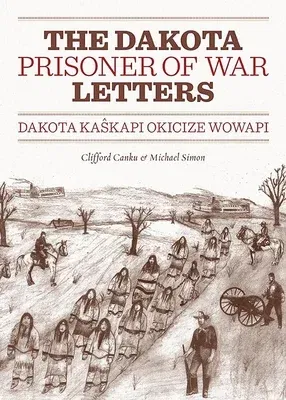In April 1863--after the U.S. Dakota War of 1862, after the hanging of
thirty-eight Dakota men in the largest mass execution in U.S. History--
some 270 Dakota men were moved from Mankato, Minnesota, to a prison at
camp McClellan in Davenport, Iowa. Separated from their wives, children,
and elder relatives, with inadequate shelter, they lived there for three
long, wretched years. More than 120 men died. Desperate to connect with
their families, many of these prisoners of war learned to write. Their
letters, mostly addressed to the missionaries Stephen R. Riggs and
Thomas S. Williamson, asked for information, for assistance, and for
help sending and receiving news of their loved ones.
Dakota elders Clifford Canku and Michael Simon, fluent Dakota speakers,
provide both the Dakota transcription and the first published English
translation of fifty of these letters, culled from Riggs's papers at the
Minnesota Historical Society. They are a precious resource for Dakota
people learning about the travails their ancestors faced, important
primary source documents for historians, and a vital tool for Dakota
language learners and linguists.
These haunting documents present a history that has long been
unrecognized in this country, in the words of the Dakota people who
lived it. The dedication written by the authors, both of whom are
descenda"nts of Dakota prisoners of war, declares: "Our relatives are
watching over us. / We are humbled as we honor our ancestors. / Woecon
kin de unyakupi do / We accept this responsibility you gave us."

